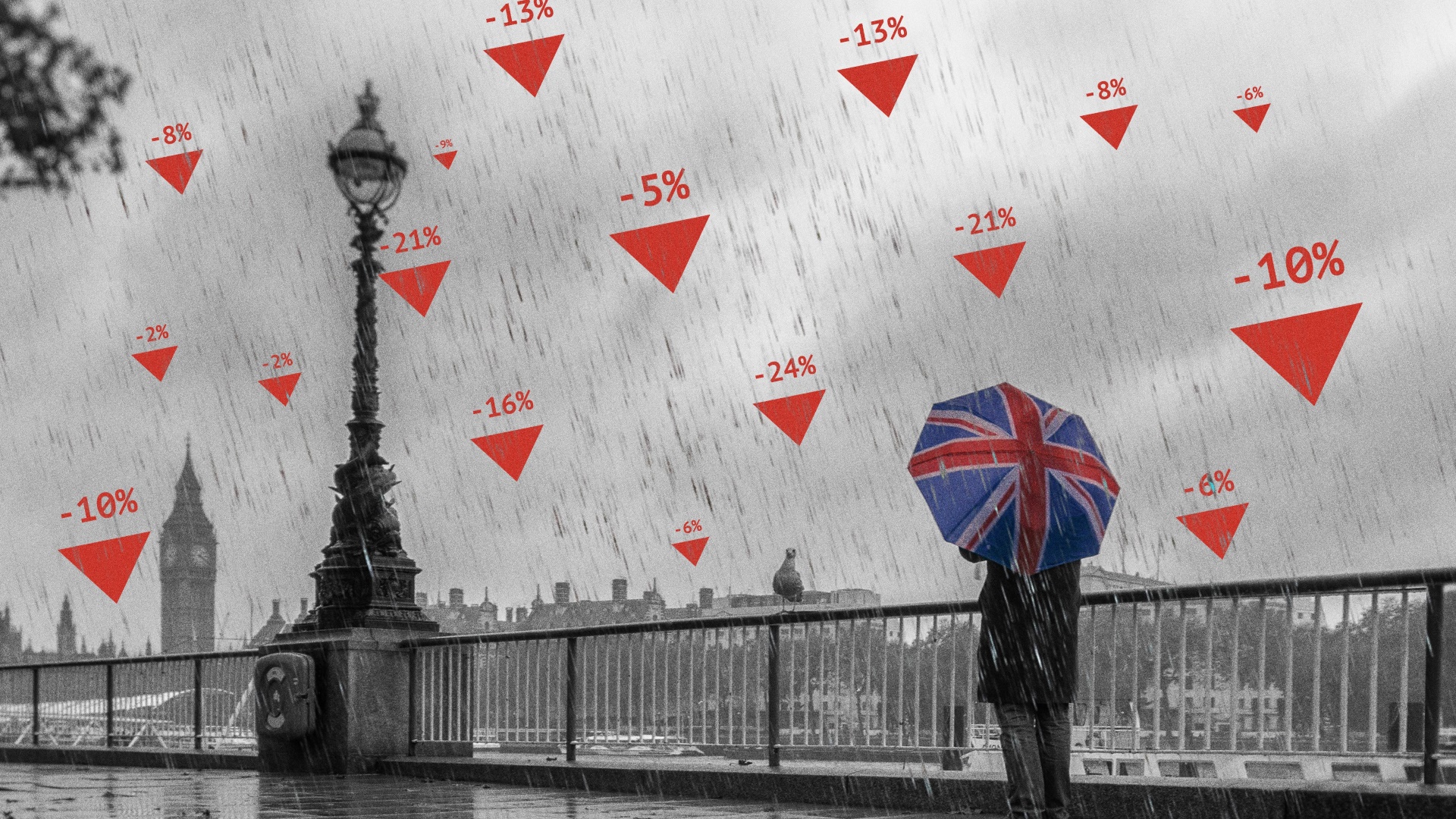Rishi Sunak and Jeremy Hunt say that, with stubborn inflation coming down, the autumn statement offers fresh hopes of a brighter economic future for Britain. Yet even in this rosiest of scenarios, three letters strike fear in the hearts of the prime minister and chancellor: FDI.
Foreign Direct Investment is a key economic indicator. It shows how much money foreign firms are willing to invest in a country, and therefore is an essential measure of how important an economy is.
The data can be difficult to analyse because it also includes the outright purchase of domestic firms by foreign ones. So FDI might surge even if a country’s currency collapses, because suddenly it is much cheaper for foreign companies to buy domestic ones.
But even taking anomalies like that into account, FDI into the UK is in serious decline, and has been ever since 2016 (a curious date, that).
In 2021, FDI into Britain was negative – minus £51.7bn, down from plus £34.8bn in 2020. Far more people are taking money out of the UK than are putting it in. Covid was a major factor that year, but Covid doesn’t explain why 2021 was also the fifth year in a row that FDI into Britain fell, having peaked in – you guessed it – 2016. The trend is clear: the UK is now losing FDI at a worrying rate.
Behind the figures lies a big, shocking truth. We are nowhere near as attractive a place to do business as we were pre-Brexit.
Before we left the EU, anyone investing in the UK had seamless, costless access to the whole of the European Economic Area; now we have placed barriers on that access. And we have had seven years of political interference in the economy: changes to standards and regulations, red tape, border delays, higher costs, and lower investment by the UK government. The Liz Truss premiership, the cancellation of HS2 and the government’s volte-face on green policies also do not encourage foreigners to invest in the UK; they prefer stability and kept promises.
Why is this such a worry for the UK? Because we have been so dependent on FDI for so many years.
Just look at the car industry. Britain can no longer own and operate large-scale car factories itself, but it has still been a very attractive place for foreign car makers to open their own factories. Those bring high levels of FDI and also provide the UK with highly skilled jobs, sound management, cutting-edge technology, training and, as a result, higher productivity.
Yet even with the government offering substantial bribes, the rate at which car companies are investing in the UK is now slowing.
Likewise, the City of London has become a magnet for foreign banks and finance firms. It even created its own concept: Wimbledonisation. This pre-Andy Murray idea to explain the attractiveness of the City was that while the UK might not be able to win any tennis competitions itself, it could really organise a world-beating tournament.
First, all the major British stockbrokers were taken over by foreign firms by the 1990s, and then overseas banks flooded into the Square Mile. So did overseas pension funds, investment trusts, insurance and shipping companies. Many foreign firms also realised, when the single market took off, that they could close their branches in Rome, Berlin, Madrid and Vienna and run their whole EU portfolio from London.
But the loss of “equivalence” after Brexit has undermined that business model. The City is still the finance capital of Europe and is likely to remain so, but it is losing jobs and investment to other EU cities.
You might think this doesn’t matter, that the UK has its own high-tech firms and dynamic economy. Except much of that industry and that dynamism comes from abroad. The UK is dependent on other people coming to do business here.
Our domestic levels of investment, training and productivity are lamentable, and only these foreign firms have kept the UK in the race. We are still miles behind the productivity and efficiency of France, Germany and America; but without FDI our economic rivals would be out of sight.
Things are so bad that the government has commissioned a report from Lord Harrington into how to improve things. He wants a new minister of FDI to sit in the cabinet, a cross-department committee to create a detailed investment plan, and the expansion of the Office for Investment. In short, a one-stop shop for foreign investors.
He seems to believe that a little more coordination from the government will perform miracles and has bent over backwards to ignore the elephant in the room: this is all down to Brexit.
Can you imagine:
Being a foreign manufacturer who was thinking of investing in the UK and being told that you will have to have all your products tested once to allow them to be sold in the EU and then tested again, possibly to an identical standard, to be able to sell them in the UK? And then discovering seven years down the road that the government had realised this was madness and has totally reversed its policy overnight?
Or being a chemical producer who is told by Brexiteers that the UK will be an attractive place to do business because standards and safeguards will be weakened over the coming years, yet knowing that lowering your own standards and safeguards means your products will be banned throughout the EU?
Or spending millions building a brand-new, state-of-the-art office in the City and recruiting the brightest and best, only to find none of them can work in the EU or even visit without a visa?
Attracting more FDI isn’t going to happen with a minister for FDI in the cabinet, or cross-departmental cooperation, or a new Treasury sub-committee. The government really needs to take the UK back into the single market. Yet it cannot even bring itself to mention the idea.




